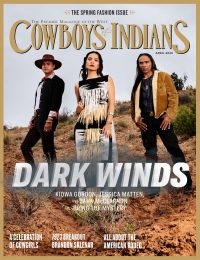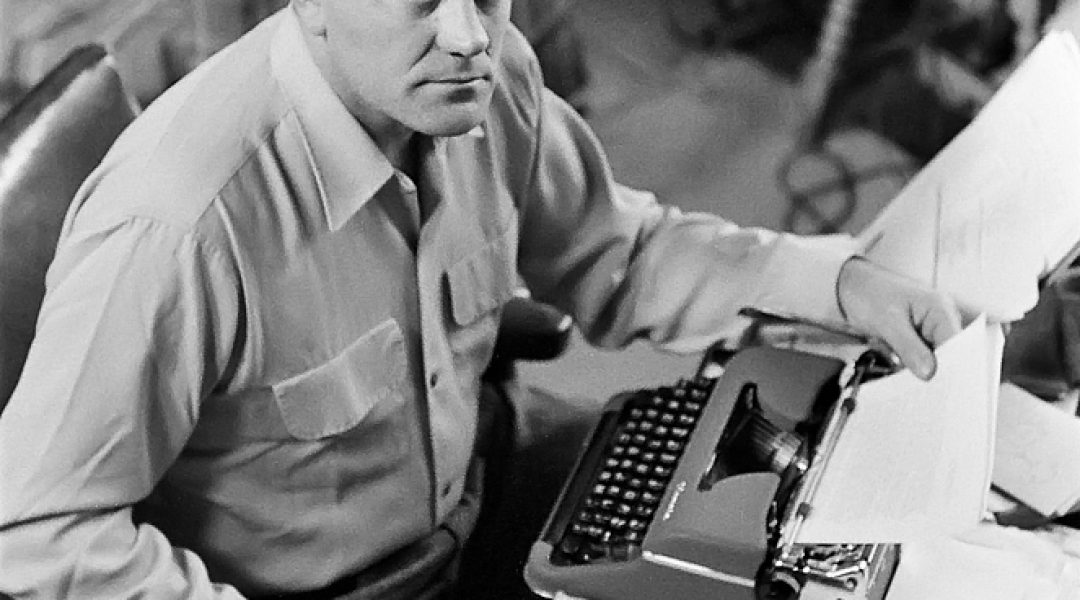C.J. Box, Craig Johnson, Jeff Guinn, and Joe R. Lansdale describe the impact Louis L’Amour had on their work and the western genre.
At the time of Louis L’Amour’s death on June 10, 1988, almost all of his existing works were still in print, and his sales had topped 200 million. That number is now well over 300 million.
As one might expect in the case of an author with such staggering sales, L’Amour wasn’t as popular with critics as he was with readers. But his influence on current western authors — whether through his writing itself or just his popularization of the genre — is undeniable.

“Louis L’Amour wrote for readers rather than professional literary critics. He told his stories simply, with emphasis on action rather than endless, extraneous detail. His work influenced mine and, I think, many other authors who attempt with some or all of their work to entertain rather than impress with overblown vocabulary.”
— Jeff Guinn, author of the 2016 TCU Texas Book Award-winning Buffalo Trail: A Novel of the American West

“Growing up in Wyoming when and where I did, I encountered very few men who read books, especially novels. These men were oilfield workers, tool pushers, ranch hands, and construction guys. They were blue-collar types who generally wouldn’t be caught dead discussing books. But there was always one exception to this: the works of Louis L’Amour. Almost magically, L’Amour was able to break through to men from all walks of life and levels of education. My grandfather, for instance, was a cowboy turned oilfield worker, and he read and collected only one author: Louis L’Amour. I still meet men who started reading L’Amour and never felt the desire to read any other author. He’s the ghost we chase and will never catch.”
— C.J. Box, author of the Joe Pickett series, including The Disappeared, released in March

“Louis L’Amour wasn’t an influence on my fiction stylistically, or how I wanted to approach it, but he was certainly a force to be reckoned with. His appeal was broad. He attracted male and female readers, and understood action, romance, as well as simple, evocative prose. He had plenty of writing experience before he embraced westerns full time. He had written all manner of stories and had many personal experiences he brought to the work, which made it stand out as more than the usual powder burners. Elmer Kelton — and I quote from memory, not by having the quote in front of me — said something to the effect that L’Amour’s characters were 7 feet tall and invincible, while his were 5-foot-8 and nervous. [Kelton repeated this line on multiple occasions with variations on attributes and heights.] L’Amour gave readers characters bigger than life, archetypes of both men and women that were similar to real people but, like John Wayne, were somehow bigger than life. Nobody did that kind of thing better in modern popular fiction.”
— Joe R. Lansdale, author of the 2016 Spur Award-winning Paradise Sky and the Hap and Leonard series

“I was working for a rancher up in Montana. I was young, and it was getting on into the fall when most of the younger cowboys got cut loose till spring. The outfit I was working for was run by a kindly individual, an older rancher, who always sent you on your way with a visit up to the big house where he’d invite you into his study and pour you two fingers of your favorite. I sat by the fire in a comfortable big chair. I remember sitting there with him, marveling at the leather-bound volumes that lined the room: Elmer Kelton, Glendon Swarthout, Walter Van Tilburg Clark, Dorothy Johnson, Luke Short, Zane Grey, and, of course, Louis L’Amour. I pointed toward the L’Amour section, which was easily the largest, and expressed how he was also one of my favorites.
“‘Hondo is maybe one of the best, straightforward westerns ever written.’ I waited a moment and then asked if he’d read all of them.
“Lowering his tumbler, he nodded. ‘I have, and if one more son of a gun makes another fire under a tree to dissipate the smoke so that the Indians don’t notice him, I’ll toss that book into the fireplace.’
“A valuable lesson for the young author: No matter how good you are — and Louis L’Amour was one of the best — you need to be careful and try not to repeat yourself.”
— Craig Johnson, author of the Longmire series
From the May/June 2018 issue.
More About Louis L’Amour
Louis L’Amour’s Law of the Desert Born Goes Graphic
Photography: (Top) Courtesy the Louis D. and Katherine E. L’Amour Trust












